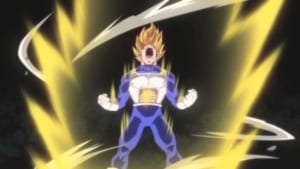If you’re on this website, you probably love categorization. Maybe you enjoy finding connections between cartoons and real-world relationships, or maybe you like to spend time analyzing the ramifications (in-universe and out) of SuperCorp. There are even some people who just like analyzing the infrastructure of certain fantasy worlds, and write meticulous multi-part literature about Asami rebuilding cities in The Legend of Korra. It really depends. One of my favorite things to analyze is power levels.
Power levels are easy to analyze, but this analysis can easily feel immature. When we are soaring on wings of enlightened rhetoric and taking on complicated issues such as consent, abuse, and oppression, it can feel a little weird to go back to the classic childhood question of, “who would win?” It’s a common question when we are just starting to take apart a fictional universe. Can Luke Skywalker beat Darth Maul? Can the Hulk beat Thor? Can the Ringwraiths beat Gandalf? What about Saruman?
Our material for power-levels has never been more abundant. As we proceed into this new age of the nerd, certain blockbusters have taken it upon themselves to answer these questions by having everybody beat up everybody else. Marvel’s Avengers had a convenient mind-control scepter, in addition to the Hulk sometimes being…mean?
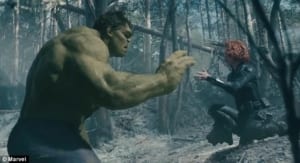
In the DC universe, Batman fought Superman for some reason. Captain America fought Iron Man for some other reason that was also somehow related to parents. Look, I’m not totally clear on it. If you’re like me, you’re too busy scrambling to assign all of these characters their power levels (powerlevels? Power-levels? Power level-s?) in light of this new information.
Most of these stories don’t require you to know the how tough everybody is. Many of the main characters aren’t going to fight each other, so why do we need to know who can beat who? The competitive and nitpicking nature of the question is compounded by how it typically runs against the general themes of these stories. Most of our heroes are trying not to fight, and the story reminds us that their self-worth is not tied to how good of a fighter they are.
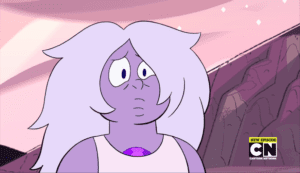
Too many fast-paced movies gloss over exactly how tough their heroes are and how much butt they can kick. Now, they skip over lots of things, like why is the villain’s plan so convoluted, and why do the laws of physics not apply here but they do over here, and why doesn’t the super spy just instantly break herself out of an unsupervised cell…. But this. This is my calling – I want to know who can beat up who. Whom. Whoms.
The question of “Who can beat who?” is one of the most important things to establish in any conflict. Because to understand any conflict in the first place, we need to establish capabilities. Your hero is probably the underdog, but we still need to know what they can do. If the hero is going to do something heroic, overcome some challenge, we probably need to know there’s at least a chance. Luke Skywalker wasn’t just thrown into a starfighter – we’d already established he had experience flying one.
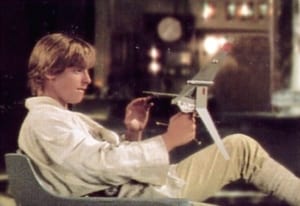
For another, more recent Star Wars example, we see Rey kicking desert thief ass before she knocks down Finn’s ass and then cuts up Kylo Ren’s ass. Uh, his face.
But beyond just basic characterization, we need to establish capabilities so that we can feel tension and heroic dilemmas. This is where the shallow question of power levels first gets a little deep. One of the most common dilemmas a hero might face is how far they should go to save lives. Is it heroic to kill a few to save the many? Well, without power levels, this question becomes much easier to answer, because you don’t know if the hero can kill/save anybody at all. Let’s get to some examples.
In Netflix’s Daredevil, the morality of violent vigilantes is fiercely debated. Matt Murdock is often going to confession and wrestling with his inner demons/devils. He beats up villains, gets beaten up by villains, Claire is upset with him, villains get upset with him, there’s a certain rhythm to the punchings. But this rhythm is disrupted in his first showdown with Nobu. Daredevil is pressed hard – he almost dies. It’s very dramatic, but there is something missing – power levels.
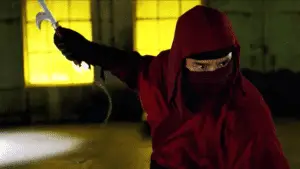
Why is this fight scene supposed to be more difficult for Daredevil? From the Watsonian perspective, we don’t know. We’ve seen Daredevil fight before in variably dangerous situations. He’s fought people with deadly weapons before. How do we know that Nobu is tougher? Who has Nobu beaten up before? We are left feeling like we need to do more research.

This is an unfortunate part of the mystery surrounding Nobu’s group, which is important for certain insidious threats to stay in the shadows until their proper dramatic revelation. The side effect is that we are left with too much space – space that should be filled with explanations of Nobu’s power, but the writers somehow missed, perhaps because of a particular blind spot. When we look back on this Daredevil fight scene, we are left wondering why exactly Daredevil relaxed his moral code of non-fatal combat in that particular battle. Was Nobu too strong for him? In that case, was it self-defense? Couldn’t he have run away when the fight turned bad? Was he strong enough to win by killing Nobu, but not strong enough to escape? It doesn’t feel right, and the theme of nonlethal justice daredevil pursues is hobbled for some of the wrong reasons. We don’t know Nobu’s power level, and power levels are required for powerful themes.
Let’s take a look at a different sequence of punching. In Captain America: Civil War, there is a tense scene where Cap finally catches up to his Bucky. They meet in some small apartment where Bucky has been chilling and eating plums, and there’s a whole bunch of faceless dudes with guns about to storm in and capture him. It’s tense.

Before the fight even starts, what do we know? The Winter Soldier has been established at this point. We know he’s a soldier; it’s right there in the title. In addition, we just had an entire movie where he beat up just about everyone he came across. He’s not your average soldier. “Winter” is some sort of multiplicative modifier.
All of this is shown or told to us. Bucky’s power level is close to, or equal to, Captain America’s. So this situation with incoming special forces is a tense scene, yes. But there is room for a conflict between our characters over how to deal with the oncoming soldiers. Captain America insists that they escape with no fatalities; Bucky has no such qualms.
The power levels are what give us breathing space to explore the characters’ morality. We know that not only are they powerful, but that they are powerful enough to win in the manner of their own choosing. Whether that includes fatalities or not is up to them. This particular fight scene continues to build on what we know about Captain America and the Winter Soldier. Without their power levels, who’s to say it isn’t self-defense or desperation? It gets more muddled. It becomes less of a theme and more of a one-shot, atypical instance from which we can’t derive much meaning about the characters.
I didn’t aim to list Daredevil as a negative example and a Star Wars prequel as a positive one, but I guess for my first essay I might as well insult everybody real quick. In Star Wars: Attack of the Clones, we are introduced to Count Dooku. He does not get scenes in previous movies like Bucky does. He just kinda turns up for Episode II. He doesn’t last for more than the first scenes of Episode III.
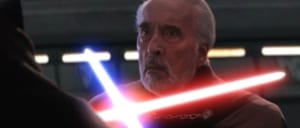
Whatever your complaints might be about the story overall, this is a good example of power levels being established quickly and functionally. Count Dooku is mentioned when Padme is pondering who might be trying to kill her this week. Lord Dooku is mentioned when Obi-Wan is wandering around the otherwise useless Jedi Archives. We learn in later scenes that Mr. Dooku was a former Jedi Master and actually taught Obi-Wan’s former master. Obi-Wan is teaching Anakin, and Obi-Wan’s teacher was taught by this big bad guy. There we go. Power levels. Rudimentary power levels….but enough for us to understand that Anakin is overmatched when recklessly charges in at the end of the movie, and why it is a heroic stand when he jumps back up. There’s room for drama. There’s room for it to be a competition, because the student can overcome the teacher and all that. And there’s room for crushing defeat.
Jedi are a great example of power levels, and the hierarchy of the Jedi Order is always used as quick shorthand for who can beat whom. Obviously there are thematic problems with assigning power levels to the “peaceful warrior diplomats”….but that’s another story.
Fight scenes just aren’t too enjoyable without powerlevels. They’re more understandable when we know what our characters can do and how they relate to each other, in terms of ass-kicking. We need to have an understanding of the combatants’ techniques and powers for us to quickly understand the sacrifices made in a scene. When you look at your favorite stories and your favorite battles in those stories, you’ll probably notice that the question of power levels has been answered in many different ways, so that you can completely digest the drama that is occurring in the latest fistfight.
When you look at your least favorite battles, maybe you’ll find that there could have been more respect for power levels. Maybe the viewer feels that the power levels are fluctuating wildly to no consequence, like with the Worf Effect. Power levels can’t be dismissed. When you’re thinking about your favorite story, don’t forget to ask yourself: is there enough talk about the characters’ levels and capabilities? Are there enough fights? Is there enough… powering up?
